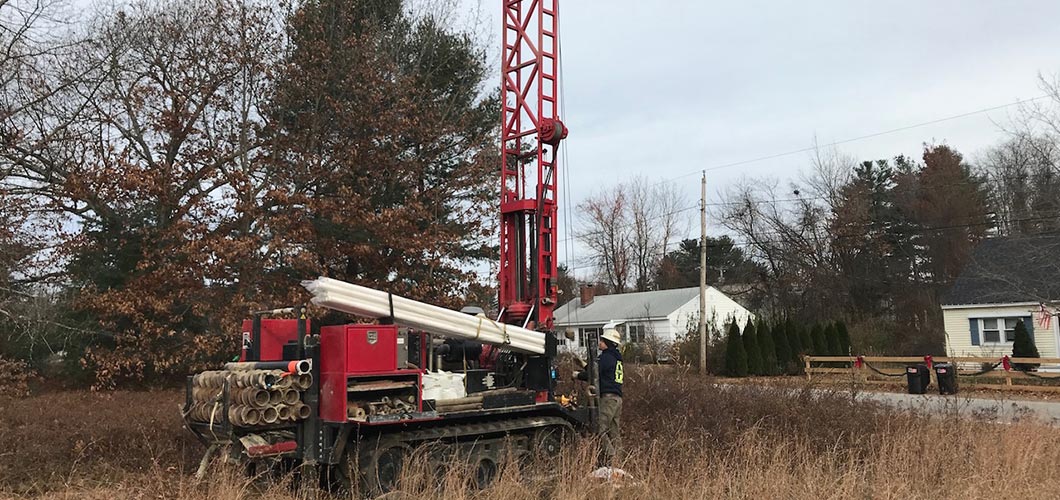Hydrogeologic investigations are typically performed to determine groundwater quality and flow characteristics. They are required by state and local regulatory authorities to protect groundwater supplies.
Aquifer Protection. Hydrogeologic investigations are conducted by municipalities to define aquifer boundaries and to delineate Wellhead Protection Areas. The investigation may be supplemented by numerical modeling techniques to define potential contaminant pathways and travel times. Many towns require hydrogeologic investigations if a development is proposed within an aquifer protection zone. Groundwater monitoring wells are installed as part of the investigation and they are typically sampled on a periodic basis.
Impact Studies. A developer or industry may be asked to conduct a hydrogeologic investigation prior to site development to determine the potential impacts the proposed site use may have on groundwater quality and quantity. For example, a multi-unit residential development to be serviced by an on-site septic leach field and private wells would raise concerns over nitrate loading and drinking water quality. Exeter Environmental has extensive experience with these potential impact studies (including nitrate-loading studies) using both analytic and numerical modeling techniques.
The State of New Hampshire is unique in issuing Groundwater Management Permits to monitor local groundwater quality conditions. Exeter Environmental has been successful in obtaining these permits. Permits may be required for monitoring large septic system discharges, industrial releases, or ambient conditions surrounding gasoline/solvent sites.
Mr. Steven Shope, President of Exeter Environmental Associates, LLC, is a Maine Certified Geologist and a New Hampshire Professional Geologist. These certifications are required for projects involving landfill closures, groundwater contamination, and gravel pit permitting.

